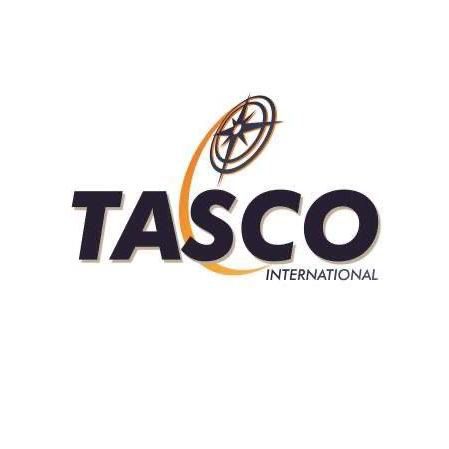Introduction
Kuwait’s industrial sector is rapidly growing, driven by oil, construction, and manufacturing industries. With this expansion, the need for robust industrial safety measures has never been more crucial. Safety products online play a pivotal role in protecting workers from potential hazards, ensuring compliance with regulations, and fostering a culture of safety within organizations.
The Importance of Industrial Safety
In industrial settings, workers are exposed to various risks, including chemical hazards, heavy machinery, and extreme environmental conditions. Implementing safety measures not only protects employees but also enhances productivity, reduces liability, and promotes a positive corporate image. In Kuwait, adhering to international safety standards is essential for businesses to thrive.
Key Industrial Safety Products
- Personal Protective Equipment (PPE):
- Helmets and Hard Hats: Essential for head protection against falling objects or collisions.
- Safety Goggles and Face Shields: Protects the eyes from chemical splashes, flying debris, and other hazards.
- Respirators and Masks: Vital in environments with airborne contaminants, ensuring respiratory protection.
- Safety Footwear:
- Steel-toed boots and slip-resistant shoes are critical for protecting feet from heavy objects and slips, respectively. In Kuwait’s hot climate, breathable materials are also essential for comfort.
- High-Visibility Clothing:
- Reflective vests and jackets are necessary for workers in busy or low-light environments, enhancing visibility and reducing the risk of accidents.
- Fall Protection Gear:
- Harnesses, lanyards, and safety nets are indispensable in construction and maintenance tasks performed at heights, safeguarding against falls.
- Fire Safety Equipment:
- Fire extinguishers, alarms, and blankets are crucial for preventing and responding to fire hazards, especially in oil-related industries.
- First Aid Kits:
- Comprehensive first aid supplies are essential in all workplaces, ensuring prompt response to injuries.
- Safety Signage:
- Clear and visible signs indicating hazards, instructions, and safety procedures help educate and remind workers about potential risks.
Regulations and Standards
Kuwait has established regulations to ensure industrial safety, guided by the Kuwait Fire Service Directorate and the Ministry of Health. Compliance with international standards, such as those set by the Occupational Safety and Health Administration (OSHA) and the International Organization for Standardization (ISO), is increasingly becoming a priority for local businesses. Regular safety audits and training programs are crucial for maintaining compliance and fostering a safe working environment.
The Role of Local Suppliers
Local suppliers play a vital role in providing high-quality safety products tailored to the specific needs of Kuwait’s industries. Many suppliers offer a wide range of products, from basic PPE to advanced safety technologies. Collaborating with reputable suppliers ensures access to reliable equipment and expert advice on best practices for safety.
Training and Education
Importance of Safety Training
Beyond providing safety products, effective training and education are critical for ensuring that workers understand how to use safety equipment properly. Regular training sessions should cover:
- Proper Use of PPE: Workers must be educated on the correct selection and usage of personal protective equipment to maximize its effectiveness.
- Emergency Response Protocols: Training should include procedures for dealing with emergencies, such as fires or chemical spills, ensuring workers know how to respond quickly and effectively.
- Hazard Recognition: Employees should be trained to identify potential hazards in their work environment, fostering a proactive approach to safety.
Continuous Learning
Safety training should not be a one-time event but an ongoing process. Organizations can implement refresher courses, workshops, and drills to keep safety top of mind. Utilizing modern technology, such as virtual reality (VR) simulations, can enhance training by providing realistic scenarios for workers to practice their responses.
Technological Advancements in Safety
Smart Safety Products
As technology continues to evolve, so do the safety products available in the market. Innovations such as wearable safety devices, smart helmets, and connected safety gear are gaining traction. These products can monitor workers’ vital signs, detect hazardous conditions, and send real-time alerts to supervisors.
Safety Management Software
Employers are increasingly adopting safety management software to track incidents, conduct audits, and ensure compliance with regulations. These platforms can help organizations analyze safety data, identify trends, and implement improvements, ultimately leading to a safer workplace.
Cultural Shift Towards Safety
Building a Safety Culture
Creating a culture of safety is essential for long-term success in industrial environments. This involves:
- Leadership Commitment: Management must prioritize safety and lead by example, demonstrating a commitment to workplace safety.
- Employee Involvement: Encouraging employees to participate in safety committees or safety audits fosters a sense of ownership and responsibility towards safety initiatives.
- Open Communication: Establishing channels for workers to report unsafe conditions or practices without fear of retribution is crucial for identifying and addressing potential hazards.
Recognition and Incentives
Implementing recognition programs for safe work practices can motivate employees to adhere to safety standards. Incentives, such as bonuses or awards for teams that maintain accident-free records, can promote a proactive approach to safety.
Challenges in Industrial Safety
Adapting to Change
As Kuwait’s industrial landscape evolves, companies face challenges in adapting safety practices to new technologies and processes. Regularly updating safety protocols and training programs to reflect these changes is essential.
Compliance with Regulations
Navigating the regulatory landscape can be complex, especially for international companies operating in Kuwait. Staying informed about local laws and international standards is crucial for compliance and avoiding penalties.
Diverse Workforce
Kuwait’s industrial sector employs a diverse workforce, including expatriates from various cultural backgrounds. Ensuring that safety training is accessible and comprehensible to all employees, regardless of their language or cultural differences, is vital for effective safety management.
Future Trends in Industrial Safety
Increased Focus on Mental Health
Recognizing the importance of mental well-being in workplace safety is becoming a priority. Companies are increasingly providing resources for mental health support and stress management, contributing to a holistic approach to employee safety.
Sustainability in Safety Products
As industries become more environmentally conscious, there is a growing demand for sustainable safety products. Suppliers are beginning to offer eco-friendly PPE and equipment, aligning safety with sustainability goals.
Regulatory Developments
Ongoing changes in safety regulations will continue to shape the industrial landscape in Kuwait. Businesses must stay informed about upcoming regulations and adapt their safety practices accordingly to ensure compliance.
Conclusion
Industrial safety products online are essential for safeguarding workers in Kuwait’s thriving industrial sector. With a strong focus on compliance, local businesses can enhance safety measures, reduce workplace accidents, and promote a culture of safety. As Kuwait continues to grow economically, investing in industrial safety will not only protect workers but also contribute to the sustainable development of the nation’s industries.



